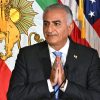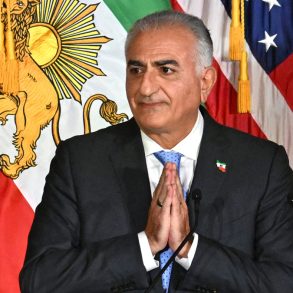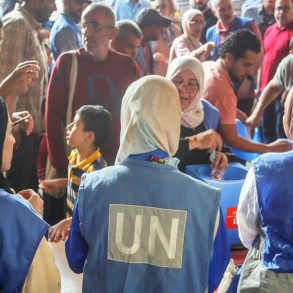Quebec’s government has ignited fierce debate with its plan to outlaw prayer in public spaces. Premier François Legault and Secularism Minister Jean-François Roberge announced that legislation would be introduced this fall in direct response to what they called the “proliferation of street prayer.” Roberge described this phenomenon as “a serious and sensitive issue” and insisted that it risks undermining civic order. Legault was blunt in his reasoning, declaring, “When you want to pray, you go in a church or a mosque, not in a public place.”
The proposal is widely seen as a continuation of Quebec’s earlier secularist agenda. In 2019, the province passed Bill 21, which barred public-sector workers from wearing religious symbols. At the time, supporters framed the measure as a defense of laïcité, or secularism, while critics called it discriminatory. Now, Quebec is extending the same principle to prayer itself, moving from symbols in the workplace to demonstrations in the streets.
From Devotion to Political Theater
Public prayer in Quebec has become entangled with political movements. Weekly rallies outside Montreal’s Notre-Dame Basilica, organized by the activist group Montreal4Palestine, have included large-scale Muslim prayers. These gatherings are not isolated moments of devotion but part of organized demonstrations linked to anti-Israel causes. According to Quebec officials, such displays often “block roads, obstruct entrances and project intimidation into the heart of civic life.”
What was once seen as a private act of conscience is now portrayed as political theater. Roberge has argued that these gatherings generate “unease” and erode the sense of neutrality required in shared civic spaces. In the words of one provincial report, public prayer “has become an increasingly visible phenomenon, particularly in Montreal,” and must be addressed before it destabilizes social order.
Even within the Muslim community, there are voices that reject the politicization of prayer. Canadian Muslim journalist Raheel Raza, cofounder of the Clarity Coalition, has said she opposes religious rituals being imposed on civic life. She criticized “street prayer” as another example of Islamists using faith as a tool for political leverage rather than devotion. Mohammed Rizwan, another Muslim commentator, warned that these displays are “a deliberate act to provoke and divide.”
Civil Liberties Groups Push Back
Unsurprisingly, civil liberties organizations have condemned the proposal. The Canadian Civil Liberties Association stated that banning public prayer would directly violate the freedoms of religion, expression, and assembly guaranteed in Canada’s Charter of Rights and Freedoms. Harini Sivalingam, the group’s equality program director, argued, “Suppressing peaceful religious expression, individually or communally, under the guise of secularism not only marginalizes faith-based communities but also undermines principles of inclusion, dignity and equality.”
The Canadian Muslim Forum issued a statement accusing Quebec’s leaders of “stigmatizing communities” and failing to focus on real problems. Archbishop Christian Lépine of Montreal added a striking critique, saying that outlawing prayer in public would be “like forbidding thought itself.” Critics charge that Quebec is not defending secularism but targeting one community, noting that Catholic ceremonies have long been tolerated in public spaces.
Quebec’s Desperation and Islamist Exploitation
Despite the outrage, there is a deeper question about the nature of public prayer in this context. To many observers, Quebec is mistaking protest for religious devotion. The reality is that Islamist groups have long used prayer as a form of political theater, meant to intimidate and assert dominance in public spaces. This has been especially clear during anti-Israel rallies, where prayer sits side by side with chants and speeches that openly promote hostility toward Jewish communities.
One example is the December demonstration outside Notre-Dame Basilica that was promoted with the title “One solution. Intifada revolution.” Another saw Montreal Imam Adil Charkaoui lead hundreds in prayers calling for the destruction of “Zionist aggressors.” These are not innocent gatherings of faith but calculated efforts to merge religion with protest. Quebec’s leaders appear to understand this, but in rushing to ban prayer altogether they show themselves as clumsy and foolish. Instead of drawing a clear line against intimidation, they risk criminalizing ordinary religious practice and playing directly into the hands of their critics.
Legal and Political Battles Ahead
Quebec’s move is certain to face a storm of legal challenges. In 2015, Canada’s Supreme Court ruled that even municipal prayers violated the state’s duty of neutrality. More recently, Quebec relied on the notwithstanding clause to protect Bill 21 from being struck down in court. It may do the same again with the proposed public prayer ban, shielding the law from constitutional review. Civil rights advocates will argue this is authoritarian. Supporters will say the real authoritarianism lies in the Islamists who demand the right to seize public streets for religious demonstrations.
Politically, the law plays into the ruling Coalition Avenir Québec’s campaign to portray itself as the defender of secular order. Yet it also reveals a desperate attempt to regain ground in the polls by stoking public unease about Islam and religious visibility. Critics like journalist André Pratte say bluntly, “No, what is disturbing is Muslims who pray, in the same way that the ban on religious signs was really aimed only at the Muslim headscarf.” His words highlight the perception that Quebec is singling out one faith under the cover of neutrality.
What Is Really at Stake
The issue goes beyond legal arguments and political tactics. At its heart lies a struggle over Quebec’s public spaces. Are they neutral grounds where all citizens meet as equals, or arenas where religion can be performed as a form of power? Quebec insists on the first interpretation, claiming that “the streets of Montreal are not open-air mosques.” Critics insist on the second, claiming that to ban public prayer is to erase religious identity.
What is clear is that Islamist groups are taking advantage of Quebec’s confusion. They have blurred the line between faith and protest, and Quebec has responded with a law that mistakes devotion for demonstration. In doing so, the government risks alienating moderate voices and deepening polarization.
The coming months will see intense debate, constitutional challenges, and continued demonstrations. But one truth is already clear: Quebec’s attempt to legislate prayer out of public life shows both the weakness and the desperation of its leaders. Rather than firmly rejecting the manipulation of religion for political ends, they have taken a path that affirms the confusion protest with prayer and emboldens those who exploit the difference.








